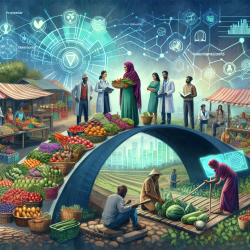Introduction
In an era where data-driven decisions are paramount, understanding the barriers and facilitators of the Farmers Market Nutrition Program (FMNP) voucher redemption is crucial for practitioners aiming to enhance nutritional outcomes for children and families. A recent study titled An Investigation of Social Ecological Barriers to and Facilitators of WIC Farmers Market Nutrition Program Voucher Redemption provides valuable insights into these dynamics, particularly in New Jersey, where redemption rates lag behind neighboring states.
Understanding the Social Ecological Model (SEM)
The study utilizes the Social Ecological Model (SEM) to dissect the factors influencing FMNP voucher redemption. This model considers multiple levels of influence, from individual knowledge and habits to broader policy frameworks. By examining these levels, practitioners can identify targeted interventions to improve redemption rates.
Key Findings
- Individual Level: Non-redeemers often face barriers such as lack of time and knowledge about cooking fresh produce. They also consume fewer vegetables compared to redeemers.
- Interpersonal Level: Family preferences and comfort levels in redeeming vouchers significantly impact redemption rates.
- Organizational Level: Inconvenient market hours and locations pose significant barriers, highlighting the need for more accessible market options.
- Community and Policy Levels: Proximity to markets and state-level policies on voucher values influence redemption behaviors.
Implications for Practitioners
Practitioners can leverage these findings to implement strategies that address identified barriers. For instance, educational programs focusing on cooking with fresh produce can enhance individual-level knowledge. At the organizational level, advocating for extended market hours or mobile markets can improve accessibility. Moreover, engaging with policymakers to adjust voucher values and market regulations can facilitate better redemption outcomes.
Encouraging Further Research
While this study provides a comprehensive overview, it also opens avenues for further research. Practitioners are encouraged to explore additional factors influencing redemption rates, such as cultural preferences and the impact of recent economic shifts. Collaborative research efforts can lead to more nuanced interventions tailored to specific community needs.
To read the original research paper, please follow this link: An Investigation of Social Ecological Barriers to and Facilitators of WIC Farmers Market Nutrition Program Voucher Redemption.










